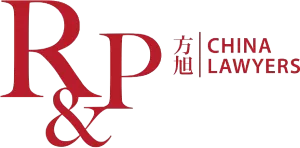- within Litigation and Mediation & Arbitration topic(s)
- with readers working within the Technology and Retail & Leisure industries
- within Litigation, Mediation & Arbitration, Privacy and Tax topic(s)
Parties often prefer to settle a dispute rather than revert to court, but if a satisfactory compromise cannot be found, then the only way to resolve the dispute may well be to file a lawsuit. Common risks to Chinese litigation (and to a certain extent, arbitration in China) are local protectionism, strict evidentiary rules, and enforcement challenges, but just as important in many smaller disputes is the cost of litigation. Companies should carefully consider whether the legal costs are worth the potential benefits, especially since not all these costs are recoverable.
(1) Pre-litigation Costs
It is not always easy to meet the strict standards of evidence that Chinese courts apply. Under China's civil law system, the plaintiff must submit evidence to prove its claim, and so there is no opportunity to procure evidence through a discovery process. Where insufficient evidence is collected, a private investigator may be able to assist, but this presents an additional cost.
Chinese courts are also strict on the form of the evidence. To foreign companies in particular, this can create a heavy burden: any evidence created outside the People's Republic of China must be notarized by a local public notary, and then authenticated (legalized) by the Chinese embassy or consulate in that jurisdiction. Charges for notarization and legalization vary from jurisdiction to jurisdiction, but where a lot of evidence must undergo this treatment, the costs can become considerable.
(2) Lawyer fees
Lawyer fees vary depending on the case at hand, and the law firm of choice. Foreign law firms do not have the right to litigate in China, which can mean that the client may end up paying for foreign and local counsel.
While judicial departments in China's cities have adopted standards to regulate litigation fees, most Chinese law firms dealing with foreign-related cases charge on time basis. To control costs, it is always advisable to ask advance estimates of time to be spent on a specific case – in first instance, second instance and enforcement proceedings. Some law firms will agree to contingency arrangements, but these are legal only for civil disputes and not when it involves criminal liabilities.
(3) Court and Preservation fees
Court fees for general civil disputes amount to 0.5-2.5% of the claim amount; where the claim is RMB 500,000 for example, court fees will be RMB 8,800. These fees are not prohibitively expensive, and often cheaper than arbitration fees. However, note that fees are collected separately for first instance and second instance trials. Moreover if the opponent refuses to adhere to an enforceable judgment, the applicant must apply for enforcement – which presents a further cost.
One of the best ways to ensure that a favorable judgment can be enforced against your opponent is to apply for preservation of the opponent's property. However this brings additional costs as well. First, an (private) investigation to the opponent's assets may be necessary. The preservation fee itself depends on the amount preserved and will not exceed RMB 5,000, but a deposit will have to be paid to the court to guarantee any damages resulting from wrongful preservation. The deposit, in the form of cash, (local) bank/company guarantee, title deed of a property etc, is decided by the court, but can amount to between 20% and 100% of the preserved amount.
Who will bear these costs?
Court fees and preservation fees are generally pre-paid by the claimant, but the court will apportion this cost between the parties. A court may also apportion pre-litigation costs such as for notarization / legalization, but certainly not always. Even if such costs are reasonable, awarding them to the winning party is at the discretion of the court.
Unlike in many other jurisdictions, and to the disadvantage of small claimants in particular, lawyer fees are usually not awarded. Exceptions are made for those cases where the parties have expressly agreed (e.g. in a contract between the parties) that in the event of a dispute, lawyer fees should be apportioned. But even then, courts may interpret this to their own standards of reasonableness, generally as per the standard rate issued by the local bar association. In practice, lawyer fees often become an expensive but ultimately unrecoverable investment to the litigation process.
The content of this article is intended to provide a general guide to the subject matter. Specialist advice should be sought about your specific circumstances.


